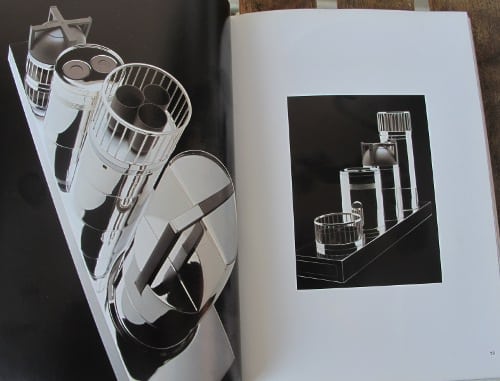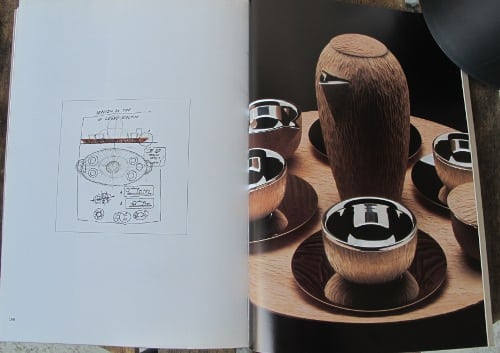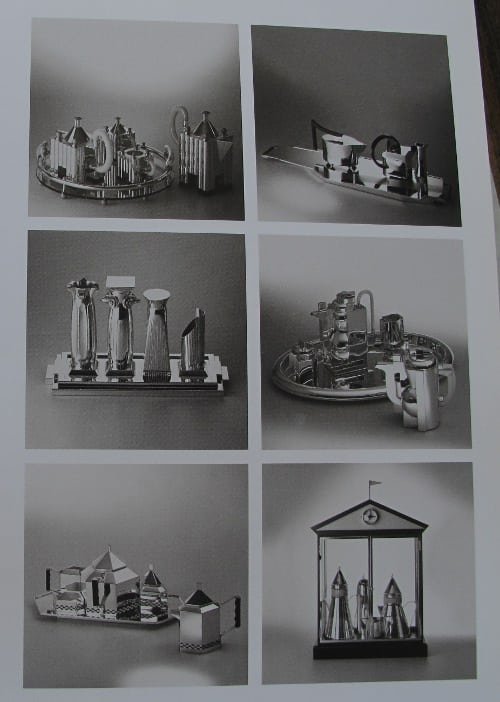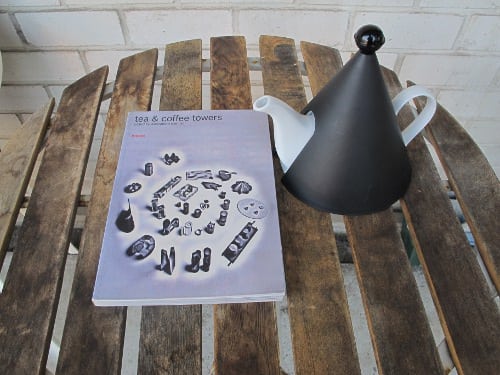Tea sets come in various forms. Designs change over time. Some changes are gradually, others by design. Modern tea ware is not rarely designed by people that have experience in designing tea ware. But what would happen if tea ware was designed by people that usually not design tea ware, but for example skyscrapers? What would those used to design the large do when then design a humble teapot?
This was the idea behind the experiment done in 1983 and in the repetition of that experiment in 2003. Each participating architect was to design a tea and coffee tower. This set should contain a teapot, a coffee pot a sugar bowl and a milk jug. In the first experiment 11 architects created 11 sets. In 2003 22 (mostly) architects designed 22 sets. My information limits itself to the second experiment, so that is what this post is about. The experiments were conducted by Alessandro Mendini and Alberto Alessi. The sets were manufactured by a company called “Alessi“.

Kung-fu tea set by Gary Chang. The set contains a Yixing teapot and several sizes of Yixing tea cups. And no coffee pot. The set is inspired by the Kung-fu tea made by his grandfather and baskets of dim-sum food.
2003 tea & coffee towers
As said in this experiment 22 (mostly) architects designed sets. A set should contain a teapot, a coffee pot a sugar bowl and a milk jug, but it goes without saying that some sets did not contain all items. A few miss a coffee pot and several dared to leave the teapot out. But most sets were complete.
Most of the designs are fascinating, intriguing and inspiring, triggering a creative mind to get creative. But most sets don’t have a design that I would put on the table. And even if there was one that I would like, there were only 99 sets of each manufactured and considering the silver used in the sets they would probably be above budget. But we have a book with pictures to remember and enjoy them.
The book
The book of the project is simple, but inspiring. After an introduction and explanation each set gets several pages. Each set description has the same format. A short explanation by the designer, a short biography of the designer(s) with photo, drawings of the designs, a list of items with measures in the set, photo’s of prototypes or computer graphics and of course several photo’s of each set in different configurations. The only downside of the photo’s is that not all angles and configurations are covered. Some sets you just want to look at from different angles and of course touch and feel and try. But unfortunately that is beyond the scope of the book.
The ideas presented in the designs are inspiring as they intended to be. The projects aim to get new ideas that can be used in more mass producible designs seems to have been successful. The wait is for a repetition of the experiment in ten years time.

This design was sneaked in by Mendini himself. The set contains no coffee pot (know your priorities as organizer). The outside is made of wood, the inside of silver. A very beautiful set.
* Alessi
* Alessandro Mendini, “Tea & coffee towers: twenty-two tea and coffee sets“, 2003, Mondari Electa spa, Milano. (amazon, worldcat)


Tea and coffee towers? Funny idea.
But you are right about the potential price (only 99 pieces of each).
Really enjoy these photos.
I liked the Kung Fu tea set.
Me too